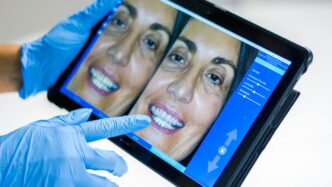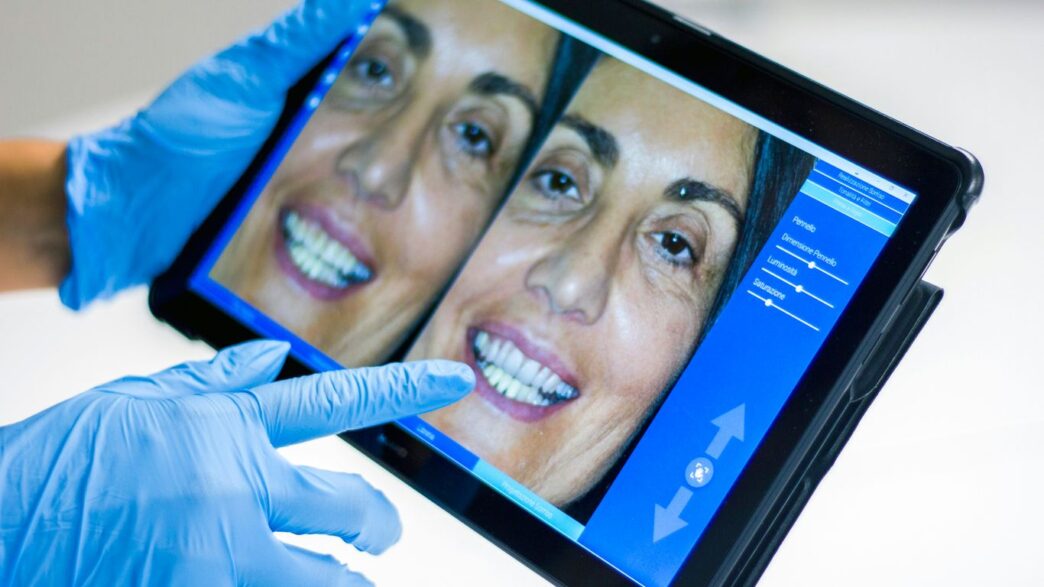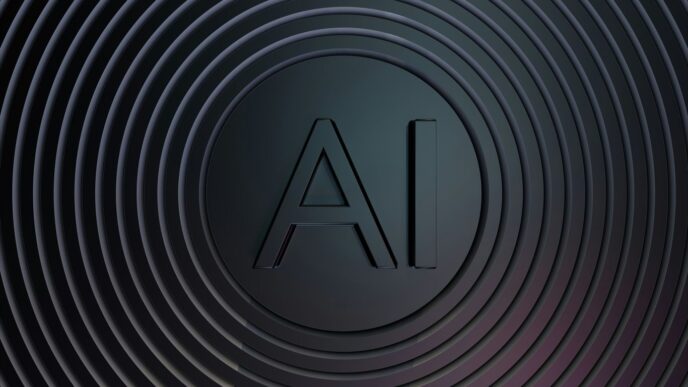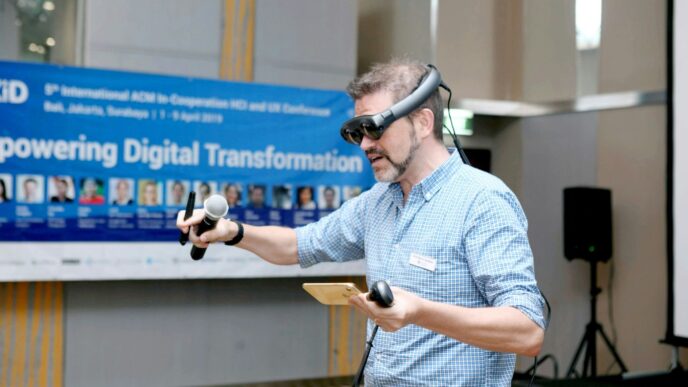So, you’re wondering, is face recognition legal in the US? It’s a question a lot of people are asking these days, and honestly, the answer isn’t super straightforward. Think of it like a patchwork quilt – some parts are clearly defined, while others are still a bit fuzzy. We’ve got different rules depending on who’s using the tech, whether it’s the government or a private company, and even which state or city you’re in. It’s a rapidly changing area, and keeping up can feel like a full-time job.
Key Takeaways
- The legality of face recognition in the US is complex, with no single federal law covering all uses.
- Government use varies, with some areas banning it, others requiring special permission, and some allowing it more freely.
- Private companies often need consent to collect and use biometric data, like face scans, thanks to laws like Illinois’s Biometric Information Privacy Act.
- Major concerns include privacy invasion, mass surveillance, and bias in the technology, which can lead to unfair outcomes.
- Businesses using face recognition should get legal advice to make sure they follow all the different state and local rules.
Understanding the Legal Landscape of Facial Recognition
The Evolving Regulatory Framework
So, facial recognition. It’s everywhere now, right? From unlocking your phone to, well, potentially watching you in public spaces. The laws trying to keep up with it are still kind of a work in progress. It’s not like there’s one big federal law that covers everything. Instead, it’s a patchwork quilt of rules, and frankly, it’s getting pretty complicated. The lack of a unified federal approach means things differ a lot depending on where you are in the US.
Fragmented Laws Across Jurisdictions
This is where it gets really tricky. Because there isn’t a single, clear federal law, different states and even cities have stepped in to make their own rules. Some places have outright banned its use by government agencies, while others have put in place specific requirements if you want to collect or use facial data. Illinois, for example, has a pretty strict law about getting consent before collecting biometric information, which includes face scans. It’s a bit of a minefield for businesses and even individuals trying to figure out what’s allowed. You really have to pay attention to the specific laws in your area, and it’s a good idea to consult with legal counsel for compliance [cf87].
The Importance of Facial Recognition Technology
Despite the legal headaches, this technology is undeniably powerful. It’s used for all sorts of things, from helping law enforcement find missing kids to making it easier for us to access secure areas. Think about how it speeds up airport security or lets you log into apps with just a glance. It’s become a pretty big deal in security and identity management. The technology itself works by mapping key points on a face and comparing them to a database. It’s gotten much more accurate over the years, thanks to advances in AI. It’s definitely changing how we do things, for better or worse.
Government Use of Facial Recognition Technology
When Uncle Sam or your local police department starts using facial recognition, things get a bit more complicated. It’s not like your phone unlocking; this is about public safety, investigations, and sometimes, just keeping an eye on things. The rules here are all over the place, which can be confusing for everyone.
Prohibited Use and Special Permission Regimes
Some places have said a flat-out
Private Sector and Non-Governmental Use
When companies or other non-government groups use facial recognition, things get a bit different. It’s not quite the Wild West, but the rules are still being figured out, and they vary a lot depending on where you are. Think of it like this: some states are putting down clear rules, while others are still debating what to do.
Biometric Information Privacy Acts
Several states, most notably Illinois with its Biometric Information Privacy Act (BIPA), have stepped in to protect people’s unique biological data. This includes things like fingerprints, voice patterns, and yes, your face. Under laws like BIPA, companies generally can’t just grab your facial data without telling you first and getting your okay. This means they need to inform you about what data they’re collecting, why they’re collecting it, and how long they’ll keep it. Then, they need your written consent.
- Notice: Companies must inform individuals before collecting biometric data.
- Consent: Explicit, written permission is usually required.
- Purpose Limitation: Data collected should only be used for the stated purpose.
- Data Security: Reasonable steps must be taken to protect the data.
Consent Requirements for Data Collection
Getting consent is a big deal. It’s not just a quick checkbox; it needs to be informed. This means you should understand what you’re agreeing to. Some laws also prohibit companies from selling or profiting from your biometric data, which is a pretty significant protection. If a company messes up and violates these rules, people can sue, and they might get paid for the trouble.
Commercial Applications and Ethical Concerns
Businesses are looking at facial recognition for all sorts of things. It can be used for customer loyalty programs, to personalize shopping experiences, or even to manage employee access. While these uses can offer convenience, they also bring up big questions. Is it okay to track customers’ faces as they move through a store? What about using it to monitor employees? These are the kinds of ethical debates happening right now, and they’re shaping how these technologies will be used in the future. The technology itself is powerful, helping with things like identity verification for online transactions or securing physical locations, but the potential for misuse is also a major concern.
Key Legal Challenges and Debates
So, what’s the big deal with facial recognition and the law in the US? It’s not exactly a simple yes or no answer, and honestly, it gets pretty complicated pretty fast. We’re talking about some major issues here that people are really debating.
Privacy Implications and Mass Surveillance
One of the biggest worries is privacy. Think about it: your face is basically your unique ID. When this technology is used everywhere, it can feel like you’re constantly being watched. This raises serious questions about whether we’re heading towards a society where everyone is under constant surveillance. It’s not just about catching criminals; it’s about the potential for tracking everyday activities without people even knowing. This is a huge concern for civil liberties advocates, and it’s a big part of why some places have put the brakes on its use. The lack of clear federal laws means there’s a patchwork of rules, and that can be confusing for everyone involved.
Algorithmic Bias and Misidentification Risks
Then there’s the issue of bias. The algorithms that power facial recognition aren’t perfect. Studies have shown they can be less accurate for certain groups, like women and people of color. This means there’s a real risk of misidentification, which can have serious consequences, especially if it’s used by law enforcement. Imagine being wrongly flagged because the system just isn’t as good at recognizing your face. It’s a problem that needs serious attention to make sure the technology is fair and doesn’t lead to discrimination. Getting this right is key to building trust in the technology.
Constitutional Protections in the Digital Age
Our old laws, like the Fourth Amendment, were written a long time ago, before all this advanced tech existed. They mostly deal with physical searches. But what about digital surveillance? Are those protections still enough when your face can be scanned from a distance, or from photos online? Many legal experts argue that current constitutional protections might not be up to the task of safeguarding our privacy in this new digital world. We need to figure out how our fundamental rights apply when technology can track us in ways we never imagined. It’s a tough puzzle to solve, and finding the right balance is ongoing work, especially as the technology keeps changing so rapidly. You can find more information on the ethical concerns surrounding facial recognition at a664.
Proposed Regulatory Interventions
So, what’s being suggested to get a handle on this facial recognition tech? It’s a bit all over the place right now, with different ideas floating around to try and make things clearer and safer for everyone. The big goal is to figure out how to use this technology without messing up people’s privacy or leading to unfair treatment. It’s a tough balancing act, for sure.
Increasing Transparency in Usage
One of the main things people are talking about is making sure we know when and how facial recognition is being used. It feels like a basic right to know if your face is being scanned and what happens with that information. Some proposals suggest that companies and government bodies should have to put up clear signs or make public announcements when they’re using these systems. Think of it like a "you are on camera" sign, but more specific about the technology. This would also mean being upfront about who is collecting the data, why they’re collecting it, and how long they plan to keep it. It’s about giving people a heads-up and a chance to understand the situation. For businesses, this means being really clear about their data collection policies, especially when it comes to sensitive biometric information. It’s a good idea to check out resources on how to handle data responsibly, like those found at information technology regulations.
Bans in High-Risk Contexts
Another big idea is to put the brakes on facial recognition in certain situations where the risks seem too high. This could mean outright bans in places like schools, places of worship, or even public parks where people expect a certain level of freedom from constant surveillance. The thinking here is that in these sensitive areas, the potential for misuse or harm outweighs any supposed benefits. It’s not about stopping the technology altogether, but about being smart about where it’s deployed. For example, using it to find a missing child might be one thing, but using it to monitor peaceful protests is another entirely. This approach aims to protect fundamental rights in environments where they are most vulnerable.
Clear Remedial Measures for Misuse
What happens when things go wrong? That’s a huge question. Proposals are also looking at what should happen if facial recognition systems are misused or if they make mistakes, like misidentifying someone. This includes having clear rules about who is responsible when errors occur and what kind of compensation or correction individuals can expect. It’s about accountability. If a system wrongly flags someone, there needs to be a straightforward process to fix that mistake and address any harm caused. This could involve independent audits of the systems to check for accuracy and bias, and having a way for people to complain or seek redress if they feel they’ve been wronged by the technology. Having these safety nets in place is pretty important for building trust.
Navigating Compliance for Businesses

So, you’re a business owner, and you’re thinking about using facial recognition tech. It’s a powerful tool, no doubt, but the rules around it are still kind of a mess. Getting this wrong can lead to some serious headaches, legally speaking.
Consulting Legal Counsel for Compliance
Look, trying to figure out all the different laws yourself is like trying to assemble IKEA furniture without the instructions. It’s just not going to end well. You really need to talk to a lawyer who knows this stuff. They can help you understand what’s allowed and what’s not in your specific area. It’s not just about federal rules; states and even cities have their own takes on facial recognition. For instance, some places have specific rules about how companies can collect and use biometric data, like your face scans. A good lawyer can help you sort through all that. They’ll look at your business model and tell you exactly what you need to do to stay on the right side of the law. It’s an investment, sure, but it’s way cheaper than dealing with a lawsuit later.
Understanding State and Local Laws
This is where it gets really tricky. There isn’t one single law that covers everything across the US. Instead, you’ve got a patchwork of regulations. As of late 2024, about 13 states and over 20 local areas have laws specifically about facial recognition. These laws can cover a lot of ground, from how data is collected to whether it can be used at all in certain situations. Some laws might require you to get explicit consent before scanning someone’s face, while others might ban its use entirely for certain purposes. For example, the California Consumer Privacy Act (CCPA) treats facial data as personal information, and if your business meets certain thresholds, you have to follow its rules. It’s a lot to keep track of, and these laws are still pretty new and not always tested in court. You might need to check out resources that track these changes, like guides from industry associations, to stay updated.
Developing Responsible Business Practices
Beyond just following the letter of the law, it’s smart to think about how you’re using this technology responsibly. This means being upfront with people about what you’re doing. If you’re collecting facial data, you should have clear policies explaining why you need it, how you’ll store it, and who you’ll share it with. Think about security too; you need to protect this sensitive information just as carefully as you would other confidential data. Some laws, like Illinois’ Biometric Information Privacy Act (BIPA), require you to protect biometric data at least as well as other sensitive information. If you mess up, you could be liable for damages for each violation. It’s also about considering the ethical side of things. Are you using the technology in a way that could be seen as intrusive or unfair? Building trust with your customers and employees by being transparent and careful is just good business. This can help avoid issues down the road, like negative publicity or legal challenges. For example, advancements in vehicle detection systems are improving, but they still need to be accurate to avoid problems, much like facial recognition.
So, Where Do We Stand?
It’s pretty clear that when it comes to face recognition in the US, there’s no simple yes or no answer. The rules are all over the place, changing depending on who’s using the tech and where. Some cities have outright banned it for government use, while others are still figuring out the best way to manage it. For regular folks and businesses, it’s a bit of a maze, with rules about collecting and using our facial data varying quite a bit. As the technology keeps getting better, it seems likely that we’ll see more laws and guidelines pop up. For now, staying informed about what’s happening in your specific area is probably the best bet.
Frequently Asked Questions
Is face recognition technology legal in the U.S. for everyone?
It’s complicated. The U.S. doesn’t have one single law for the whole country. Some cities and states have banned or limited its use, especially by police. Other places allow it, but rules can change depending on who is using it – like the government or a private company.
Can police use face recognition?
Yes, many police departments use it. However, some cities have banned police from using it. There are also discussions about requiring police to get a warrant before using it to identify someone. It’s a hot topic with different rules in different places.
Do companies need my permission to use face recognition?
Often, yes. Some states, like Illinois, have laws that say companies must get your written okay before collecting your face information, which is considered private data. But not all states have these strict rules.
Are there problems with face recognition accuracy?
Yes, there can be. Studies show that face recognition systems can be less accurate for people with darker skin or for women. This can lead to mistakes, like wrongly identifying someone, which is a serious concern.
What are the main worries about face recognition?
People worry about privacy because the technology can track where you go without you knowing. There are also worries about fairness because the technology can make mistakes, especially with certain groups of people. It could also be used for mass spying.
What is being done to make face recognition safer?
Lawmakers are thinking about new rules. Some want to make it clearer how and where the technology is used. Others want to ban it in risky situations, like for tracking children. They also want to have clear ways to fix problems if the technology is misused.














